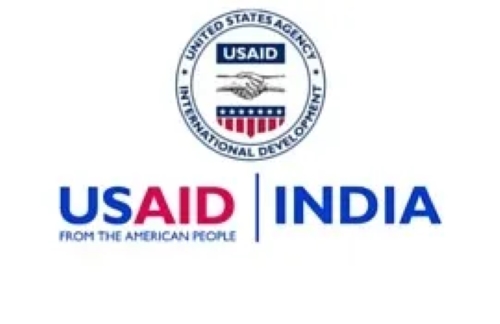The United States Agency for International Development (USAID), the primary humanitarian and development agency of the US government, is facing a significant threat under the Trump administration. US President Donald Trump, alongside billionaire Elon Musk, has pushed for deep budget cuts, restructuring, and potential dissolution of the agency. This move has raised concerns about the future of US foreign aid and its impact on global humanitarian efforts.
Why Are Trump and Musk Dismelting USAID?
Key Reasons:
- Reducing Government Spending: Trump has pledged to reduce federal expenses and eliminate what he calls "government bloat."
- Downsizing the Bureaucracy: Musk, appointed as the head of the Department of Government Efficiency (DOGE), aims to cut $2 trillion in spending.
- Restructuring Federal Agencies: USAID is under review for inefficiencies, with discussions about merging it into the US State Department.
- Elimination of Certain Programs: Programs supporting Diversity, Equity, and Inclusion (DEI) are already facing defunding.
What is USAID?
The United States Agency for International Development (USAID) is an independent agency of the U.S. government, founded in 1961, responsible for providing foreign aid and development assistance. It focuses on humanitarian relief, economic growth, global health, democracy promotion, and environmental sustainability. Operating in over 100 countries, USAID aims to foster global stability, prosperity, and U.S. foreign policy objectives.

Source: npr.org
| Aspect | Details |
| Established | 1961 by President John F. Kennedy |
| Mission | Providing humanitarian aid and development assistance worldwide |
| Budget (FY2023) | $43 billion |
| Top Recipients (FY2023) | Ukraine, Ethiopia, Jordan, DR Congo, Somalia, Yemen, Afghanistan, Nigeria, South Sudan, Syria |
| Workforce | Over 10,000 employees, with two-thirds working overseas |
| Global Presence | 60+ missions, funding for NGOs, foreign governments, and international organizations |
What are the Core Functions of USAID?
- Poverty Alleviation: Funding for economic development projects.
- Healthcare: Vaccination programs, pandemic response, and disease eradication efforts.
- Education: Establishment of educational institutions and literacy programs.
- Disaster Relief: Emergency food, shelter, and reconstruction aid.
What are the USAID’s Historical Significance?
Cold War and Early Years
- Post-WWII Reconstruction: Modeled after the Marshall Plan.
- Anti-Communist Strategy: Provided economic aid to Latin America to counter the spread of communism (Alliance for Progress, 1961).
Key Global Contributions
- Agricultural Advancements: Support for food security programs.
- Infrastructure Development: Funding for roads, hospitals, and schools.
- Humanitarian Interventions: Aid in conflict zones and disaster-stricken regions.
What is USAID’s Role in India?
USAID plays an important role in India, i.e
Major Contributions
- Education: Helped establish 8 agricultural universities, 14 regional engineering colleges, and the first Indian Institute of Technology (IIT).
- Public Health: Strengthened national immunization programs for polio, tuberculosis, and HIV/AIDS.
- Economic Support: Provided emergency food assistance since 1951.

Source: scitechpark.org
Challenges and Conditional Aid
- 1965: USAID loaned $67 million for a fertilizer plant in Chennai but mandated private American control over distribution.
- 2004: India rejected conditional foreign aid, leading to reduced US assistance.
| Year | US Aid to India (in million $) |
| 2001 | 208 |
| 2023 | 153 |
| 2024 | 141 |
Future Impact on India
- India’s social welfare programs are largely self-sufficient.
- Reduced USAID funding is unlikely to disrupt India’s economic or developmental trajectory.
What will be the Potential Consequences of USAID’s Shutdown?
There would be both domestic and international impacts are shown i.e.
Domestic Implications
- Loss of over 10,000 jobs within the agency.
- Disruptions in foreign aid distribution and diplomatic relations.
- Shift in power dynamics as the State Department takes control of aid programs.
Global Humanitarian Impact
- Reduction in food security programs.
- Withdrawal from health initiatives, including pandemic preparedness.
- Diminished US influence in global humanitarian diplomacy.

Source: BBC
Conclusion
The Trump administration’s push to restructure or dissolve USAID, spearheaded by Musk’s Department of Government Efficiency, is a significant shift in US foreign policy. While proponents argue it will reduce unnecessary spending, critics warn of severe global consequences, including disruptions in humanitarian aid, global health initiatives, and international diplomatic relations. The future of USAID remains uncertain, but its potential closure will undoubtedly reshape America's role in global development.
Comments
All Comments (0)
Join the conversation